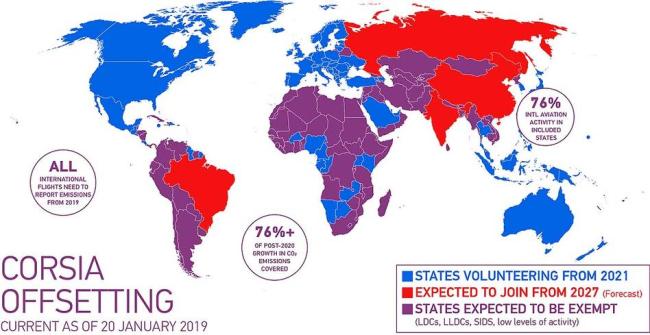Clearing the Air: Boeing Helps Airlines Cut Emissions
As aviation’s global fleet doubles over the next 20 years to meet passenger and cargo demand, the industry has committed to capping the growth of carbon emissions by 2020 and then cutting them to half of what they were in 2005 by 2050.
“Boeing is significantly supporting progress with our highly efficient airplanes and our work with industry partners to improve operational efficiency. We’re also a leader in fostering the development of sustainable aviation fuel,” said Sean Newsum, director of Commercial Airplanes environmental strategy.
According to the Air Transport Action Group (ATAG,) aviation has exceeded a voluntary goal to improve the global fleet’s fuel efficiency by 1.5 percent annually since 2009 – with emissions increasing at less than half the rate of fleet growth. “But aviation still needs a way to close the gap to meet our goals, which involves a market-based measure system that formally begins this year,” Newsum added.
ATAG estimates the market-based system will offset more than three-quarters of the post-2020 growth in emissions from international flights. Airlines flying to and from a participating country will need to buy carbon credits to offset the annual increase in emissions from 2021 onward.
So far, 78 countries have agreed to participate in the Carbon Offsetting and Reduction Scheme for International Aviation (CORSIA), with the rest of the world participating over time. To prepare, carriers are measuring their emissions in 2019 and 2020—many are getting help from Boeing Global Services.
“Boeing has been working closely with our airline customers in person and using social media to ensure they’re ready,” said Lucia Wamiti, Emissions Reporter product manager. “The centerpiece of our support is Emissions Reporter, an online software tool that simplifies monitoring and reporting.” Wamiti also said guidance on how to prepare for this new scheme is also a provided service.
Emissions Reporter, originally developed in 2012 to support aircraft operators under the European Union Emissions Trading System (EU-ETS), is a simple and intuitive tool to support small and large operators. It reduces administrative burden to save customers time and money.













